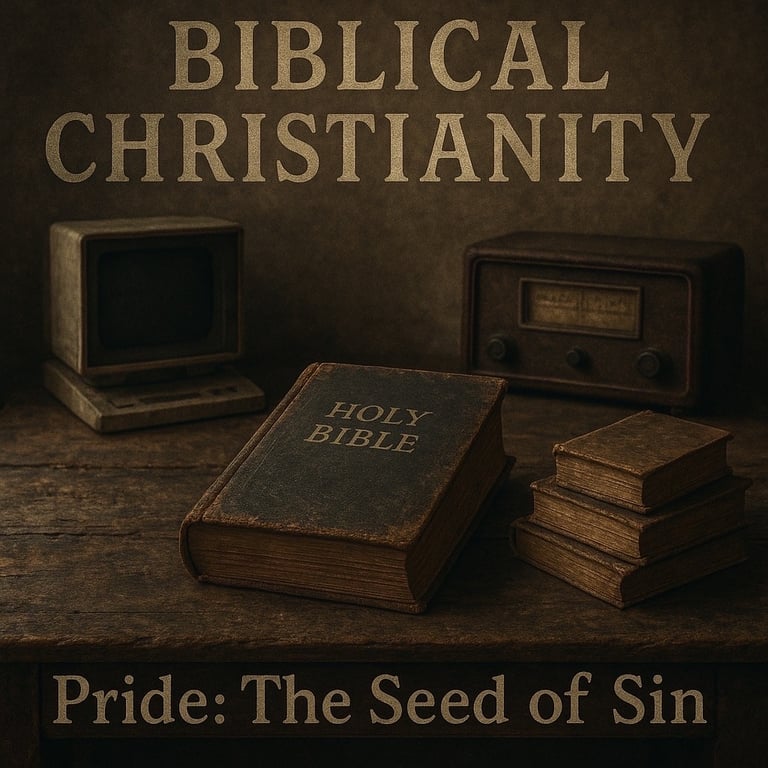

Chapter 5: The Loudest in the Room — Look at Me
Pride doesn’t always wear a crown.
Sometimes it just holds a microphone.
Or a mirror.
Or a spotlight.
It doesn’t need to be right—
just noticed.
It doesn’t need to be loud—
but it usually is.
Sometimes pride just says,
“Look at me.”
Center Stage
We all want to matter.
But pride takes that longing
and turns it into performance.
– “Do they see me?”
– “Did they notice?”
– “Am I being appreciated?”
– “Will they remember what I did?”
These aren’t always sinful questions—
but pride insists they must be answered “yes.”
It makes us the main character in every room.
Pride is the hunger to be seen
that never gets full.
The Many Forms of “Loud”
You don’t have to talk the most to be proud.
But sometimes you do.
– Dominating conversations.
– Needing to correct everyone.
– Constantly redirecting the topic back to yourself.
– Being easily offended when overlooked.
That’s one form of loud.
But there’s also the quiet kind:
– Silent sulking when unnoticed.
– Manipulative silence to draw attention.
– Passive-aggressive withdrawal.
– Needing affirmation, constantly.
Both say, “I need to be at the center.”
Just with different volume.
The Hidden Thirst for Glory
We may not crave fame,
but we crave admiration.
We want to be impressive,
respected, quoted, praised.
We don’t just want to do good—
we want others to know we did it.
We want our generosity known,
our sacrifice appreciated,
our wisdom echoed.
This is the danger:
Doing good things
for the wrong eyes.
Jesus Warned Us
“Beware of practicing your righteousness before others
to be seen by them.” — Matthew 6:1
He didn’t say don’t do good things.
He said don’t do them for applause.
“When you give… don’t let your left hand know what your right is doing.”
“When you fast… wash your face.”
“When you pray… go into your room.”
Not because good deeds should be hidden—
but because God sees in secret.
And pride doesn’t like secrets.
It wants to be seen.
Christ, the Opposite
What did Jesus do with His power?
He washed feet.
What did He do with His glory?
He veiled it.
What did He do with His platform?
He avoided it—until the time was right.
He rode into Jerusalem on a donkey,
not a war horse.
He healed and often said,
“Tell no one.”
And when He stood before Pilate—
with all heaven at His command—
He said almost nothing.
Jesus didn’t need to prove Himself.
Because He was rooted in the Father.
Am I the Loudest in the Room?
That doesn’t always mean noise.
It could mean presence.
Control.
Emotional manipulation.
Social performance.
But the core is this:
Do I need to be noticed to feel secure?
And if so,
what does that say about my heart?
What Does It Matter?
Pride craves attention.
It thrives on recognition.
And when it doesn’t get it—
it sulks, schemes, or shouts louder.
But pride cannot rest.
Because pride always needs another look,
another compliment,
another moment in the light.
Humility, by contrast, is free.
Free to serve without credit.
Free to disappear without despair.
Free to let someone else shine.
That’s the way of Christ.
And it’s the only way pride dies.
Reflection and Questions
Do I need to be seen to feel valued?
How do I react when someone else is praised and I’m not?
Do I speak often—but mostly about myself?
Can I serve quietly without resenting the lack of credit?
What would change if I truly believed that God sees me—even when no one else does?

